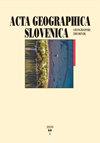公共用水的动机、稳健性和效益:来自小型饮用水供应系统的见解
IF 0.9
4区 地球科学
Q3 GEOGRAPHY, PHYSICAL
引用次数: 0
摘要
本文以饮用水为重点,论述了公共水资源的治理。该研究采用了两个概念框架:奥斯特罗姆的设计原则和社会生态系统框架。实证部分是指斯洛文尼亚的两个水资源公地,并基于对当地人和专业人士的半结构化访谈的定性数据。本文遵循三个目标:1)确定成功的地方水治理的驱动因素和动机;2)根据当前和未来的挑战评估水资源公地的稳健性;3)确定水公地的好处。受审查的两个地方社区运作的关键因素是共同的利益,以及对有效管理的坚定承诺。除了物质利益(即饮用水供应),非物质利益也很重要。社区建设和身份认同尤其值得注意。组织良好和负责任地管理的小型饮用水供应系统的重要性不仅对市政当局有利,而且对一个国家有利。本文章由计算机程序翻译,如有差异,请以英文原文为准。
Motivation, robustness and benefits of water commons: Insights from small drinking water supply systems
The article addresses the governance of water commons with an emphasis on drinking water. The study applied two conceptual frameworks: Ostrom's Design Principles and the Social-Ecological Systems framework. The empirical part refers to two water commons in Slovenia and is based on qualitative data from semi-structured interviews with locals and professionals. The article follows three objectives: 1) to identify the drivers and motivations for successful local water governance; 2) to assess the robustness of water commons in terms of current and future challenges; 3) to identify the benefits of water commons. The key elements for the functioning of the two local communities under examination are shared interests, as well as a strong commitment to effective management. In addition to the material benefits (i.e. drinking water supply), non-material ones are also important. Community building and identity are particularly noteworthy. The importance of small drinking water supply systems that are well organised and responsibly governed as commons is beneficial not only to a municipality but also to a country.
求助全文
通过发布文献求助,成功后即可免费获取论文全文。
去求助
来源期刊
CiteScore
2.60
自引率
35.30%
发文量
15
审稿时长
>12 weeks
期刊介绍:
Acta geographica Slovenica publishes original research papers from all fields of geography and related disciplines, and provides a forum for discussing new aspects of theory, methods, issues, and research findings, especially in Central, Eastern and Southeastern Europe.
The review accepts original research papers and review papers. Papers presenting new developments and innovative methods in geography are welcome. Submissions should address current research gaps and explore state-of-the-art issues. Research based on case studies should have the added value of transnational comparison and should be integrated into established or new theoretical and conceptual frameworks.
The target readership is researchers, policymakers, students, and others who are studying or applying geography at various levels.
Submissions are accepted in English or Slovenian.

 求助内容:
求助内容: 应助结果提醒方式:
应助结果提醒方式:


